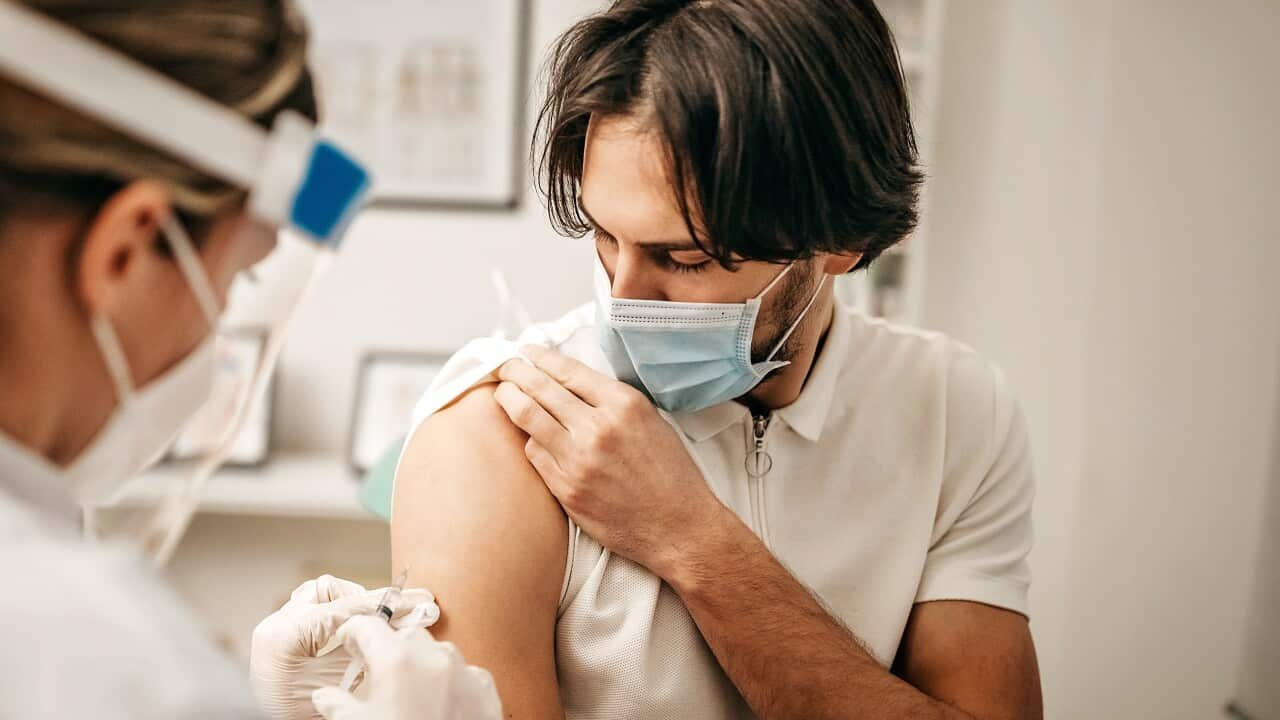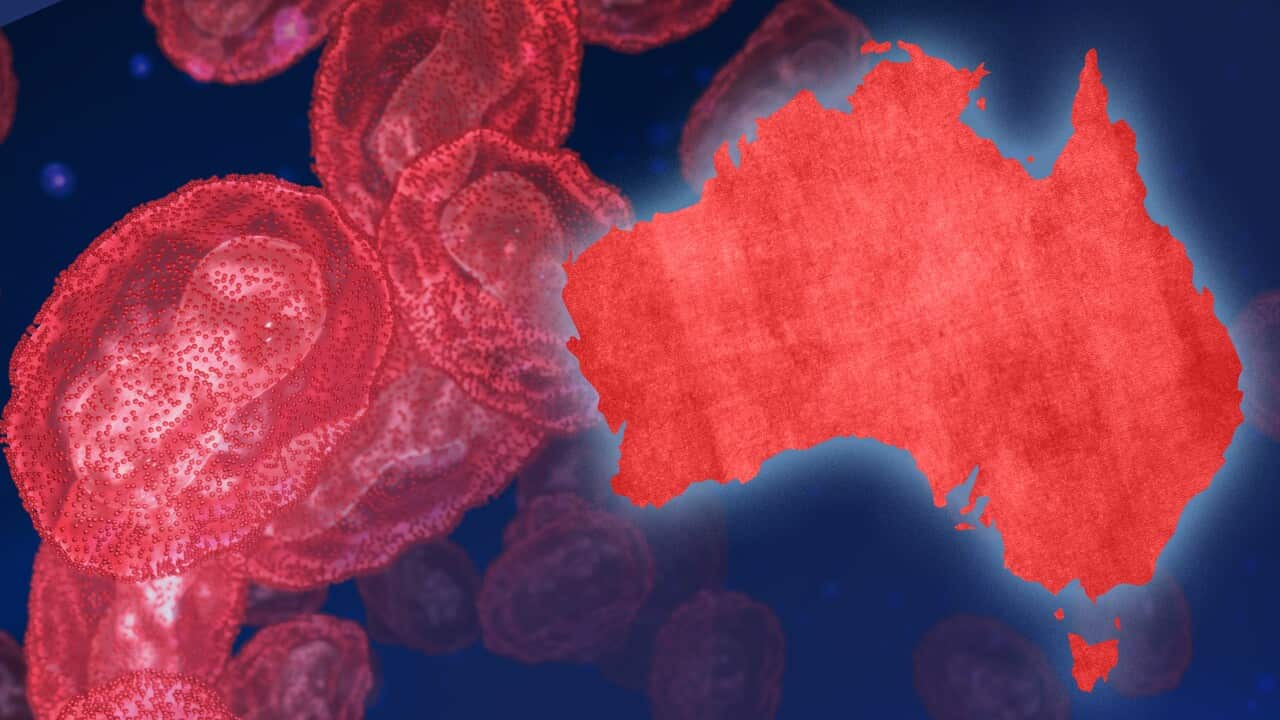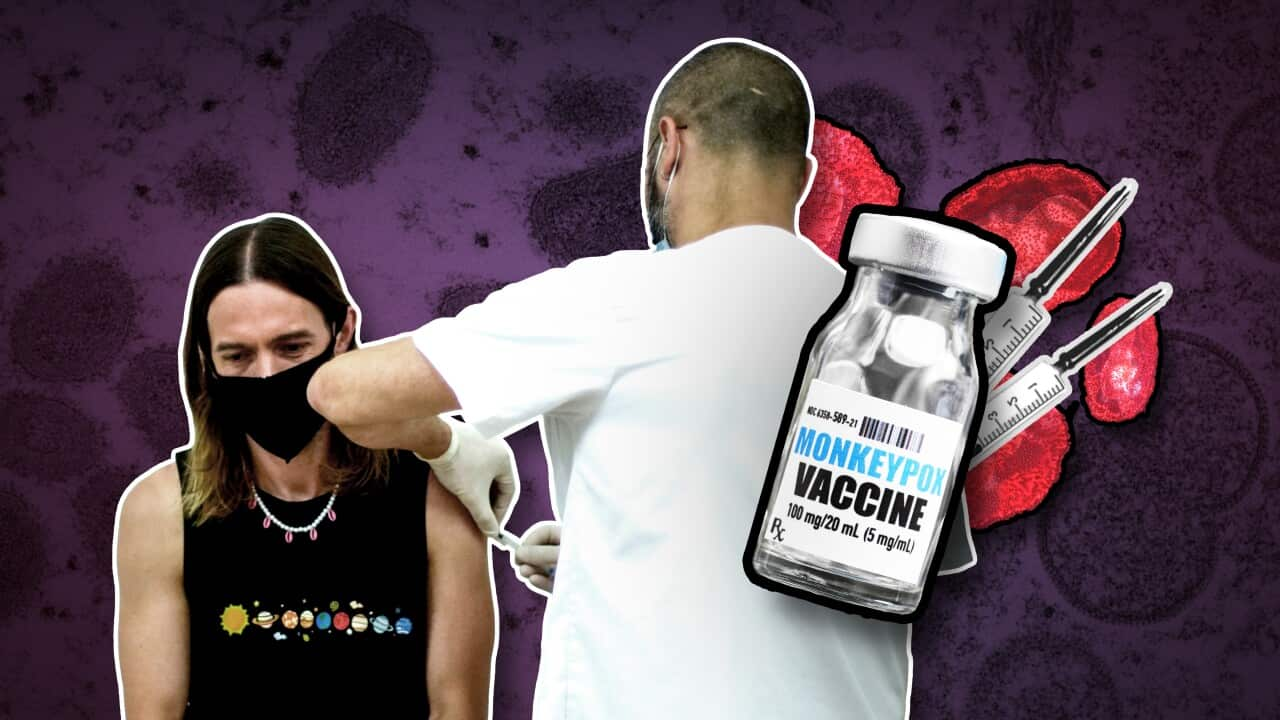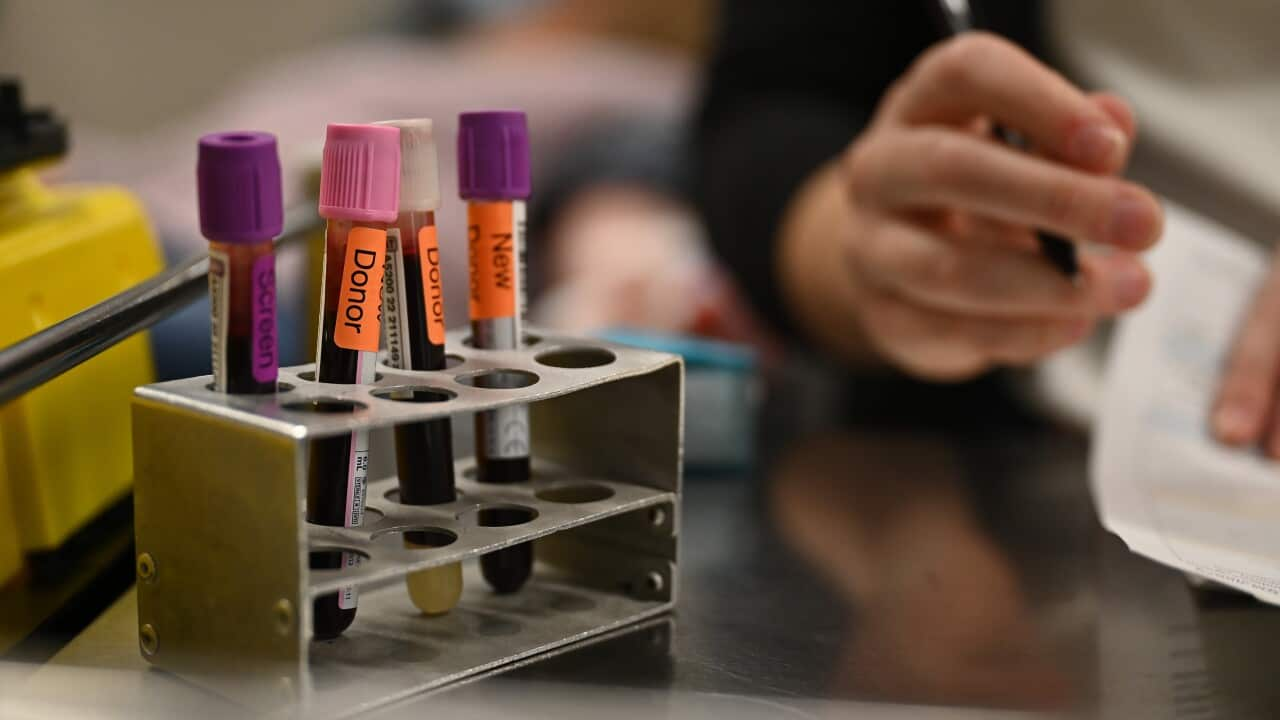Key Points
- People from Australia's gay community have condemned stigmas around the current monkeypox outbreak.
- Health experts say the virus can affect anyone.
Australian man Riley [not his real name] was getting a check-up at a doctor's practice in Melbourne last week when he asked a nurse for advice on monkeypox treatments and the availability of a vaccine.
The nurse told him not to have sex with other men.
"I went for my regular STI check before I head overseas to Europe and at the end of the tests, since I saw online that monkeypox is actually quite prevalent in my community, I asked about available treatments," Riley, who is gay and in his 20s, told SBS News.
"The nurse's response back to me was that there's nothing they can do about it except recommend that I 'restrain from sexual contact while overseas'.
"This just takes us back to the '80s with the height of the AIDS epidemic and the stigma attached to that," Riley said.
"The last thing we want is to be associated with yet another virus, and especially when this isn't sexually transmitted."
This just takes us back to the '80s with the height of the AIDS epidemic.Riley
The World Health Organisation (WHO) has declared monkeypox a global emergency. There have been more than 20,000 cases recorded across 71 countries.
But on Wednesday, WHO chief Tedros Adhanom Ghebreyesus went one step further, saying the best way to protect against infection was "to reduce the risk of exposure", which included advising men who have sex with men to limit their sexual partners.
"For men who have sex with men, this includes, for the moment, reducing your number of sexual partners, reconsidering sex with new partners, and exchanging contact details with any new partners to enable follow-up if needed," he told reporters.
Ninety-eight per cent of monkeypox cases have occurred in men who have sex with men but anyone can get the disease. It is not categorised as a sexually transmitted infection (STI) and is spread by close contact with rashes or sores, body fluids including from sneezing, and contaminated objects such as towels.
Cases in Australia are small (44), with the majority impacting returned international travellers and people aged 21-40. Symptoms are relatively mild, although five deaths have been reported overseas, and the disease is far less transmissible than COVID-19.
But on Thursday, Australia's Chief Medical Officer Paul Kelly said although monkeypox is not usually considered an STI, "physical contact with an infected person during sexual intercourse carries a significant risk of transmission".
"The experience internationally and in Australia to date is most cases have been among gay, bisexual and other men who have sex with men," he said while declaring it a Communicable Disease Incident of National Significance.
"Intimate physical contact such as hugging, kissing and sexual activities represent a risk of infection ... The rash usually occurs on the face before spreading to other parts of the body, including the palms of the hands and the soles of the feet. However, in this outbreak it is being seen especially on the genital and perianal regions of affected people."
Some health experts and advocates from Australia's gay community fear linking the disease so directly to men who have sex with men (MSM) could lead to undue stigma.
"The virus doesn't discriminate," said Colin Batrouney, director of health promotion, policy and communications at Thorne Harbour, a health advocacy group for Australia's LGBTIQ+ community.
"At the moment, there seems to be a concentration on MSM in the media but this virus could infect anyone."
Riley acknowledges: "The reason why I asked for [advice] is because I already saw all the reports on all the websites saying it's affecting men who have sex with men.
"But in reality, I'm going to be in Europe, at festivals, not just around gay men, but around everyone ... I don't see how it's related to who you're having sex with, whether that be a woman or a man.
"It's going to spread because of close contact, but it's got nothing to do with who you're having sex with."
Associate Professor Edwina Wright, an infectious diseases specialist at Alfred Health in Melbourne, has worked extensively on the effects and treatment of HIV-related diseases and worked during the HIV/AIDS epidemic.
She said the stigma emerging around monkeypox, like during the AIDS epidemic, "stands in the way of good health outcomes".
"I certainly see the potential for stigma to manifest in similar ways that it did during the early days of the AIDS epidemic," she said.
"On social media, people infected with monkeypox are reporting from their hospital bed about their experience and they are already getting comments like 'Didn't you learn your lesson from HIV?'"
Professor Wright said men who have sex with men should actually be thanked for highlighting when they are sick to doctors and that it was important the public is aware monkeypox does not only affect them.
"From an epidemiological point of view it is standard to report the details of people and populations who are presenting with a new illness or infection," she said.
"But if you examine the situation more closely, I think that what we are witnessing is the excellent health-seeking behaviour that men who have sex with men have and which has led to MSM presenting promptly when they became unwell.
"This has probably allowed us to identify the epidemic quite early.
What we are witnessing is the excellent health-seeking behaviour that men who have sex with men have.Edwina Wright, Infectious diseases specialist
"What we now need to do is to send a meta-message that transcends any details about MSM being a population at risk and educates the public that anyone who has close or intimate contact is vulnerable to becoming infected with this virus.
"We need to bring the public along with the science - just like we did with COVID - and explain to them carefully where we are with vaccine procurement etc."
Riley hopes the attention around monkeypox can now turn towards finding a solution rather than finding someone to blame.
"I'm surprised that when it comes to viruses like COVID-19, the focus was straight away on finding a vaccine and rolling it out," he said.
"Now the focus is on abstaining from sex or limiting your life and what you do.
"Especially when there's already a vaccine available, and all they need to do is roll it out and give it to people who actually need it so they can live their lives."
Two vaccines have been approved but only a limited amount has been acquired by Australia.
"I think all our efforts need to be focused on securing the availability of the third generation vaccination and an implementation plan for the rollout to at-risk individuals," Mr Batrouney said.
"The gay/MSM community are more concerned with prevention of monkeypox and the need to protect each other from this debilitating disease.
"That is why the rollout of a vaccination program is essential."
A spokesperson for the Australian Federation of AIDS Organisations (AFAO) said the focus now should be on health promotion campaigns, not stigma.
"As we craft health promotion campaigns for monkeypox, it is critically important we don’t inadvertently inflame stigma against gay and bisexual men," they said.
"This is one reason why LGBT community health organisations need to be heavily involved in designing and promoting campaigns that support gay and bisexual men to understand the benefits of vaccines, the importance of testing and the need to seek treatment.
A spokesperson for Australia's Department of Health said "stigmatising people because of a disease is never okay and has no place in a public health response".
"Monkeypox is spread via close physical contact and anyone can get or pass on monkeypox, regardless of their sexuality. Communication from the Department makes this very clear.
"We do recognise the concern that gay, bisexual and other men who have sex with men" have about the disease, the spokesperson said, adding the department was working closely with peak bodies and organisations.
The WHO has previously warned against stigma around the disease, which could dissuade those infected from seeking treatment.
"Stigma and discrimination can be as dangerous as any virus, and can fuel the outbreak," Mr Tedros said.
- With AFP
LGBTIQ+ Australians seeking support with mental health can contact QLife on 1800 184 527 or visit . also has a list of support services.












